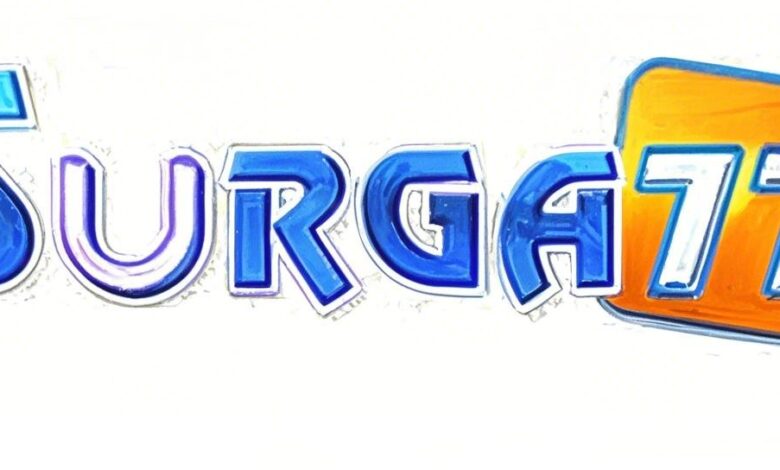Unlocking Paradise: Why Everyone’s Buzzing About surga77 (And Why You Should Too!)

Introduction
Let’s be real, when you hear the word “surga”, your mind probably wanders to images of exotic beaches, glittering turquoise water, and serenity wrapped in a soft, tropical breeze. Well, hold onto that vibe because surga77 brings that same energy,but digitally! No sunscreen needed.
But what is surga77, exactly? A mysterious name cloaked in whispers and curiosity, it’s been surfacing in forums, blogs, social posts, and coffee shop convos lately like an underground secret waiting to explode. Whether you’re a techie, a casual netizen, or just someone who clicked out of curiosity (hey, we all do), you’re about to uncover something intriguing, exciting, and, dare we say, a bit addictive.
So buckle up, and let’s peel back the layers of the enigma that is surga77.
What in the World is surga77?
Picture a place where entertainment, innovation, and a dash of mystery collide. That’s surga77 in a nutshell or at least the surface of it.
The term itself might sound exotic, almost poetic. “Surga” translates to “heaven” in Indonesian, and let’s face it, 77 just gives it a lucky spin. Whether it’s a brand, a platform, a movement, or a bit of all three,it’s something that’s captured people’s imagination. And no, it’s not just another cookie-cutter site with flashy banners and empty promises.
The Core Vibe of surga77
While it’s hard to pin down with just one label, most who’ve interacted with surga77 describe it using words like:
-
Immersive
-
Sleek
-
User-focused
-
Oddly comforting
-
Low-key addictive
And we’re not even being dramatic.
Why Is surga77 Gaining Traction So Quickly?
There’s always that one brand or platform that hits just right and surga77 seems to have cracked the code. So what’s the deal?
1. It’s Designed with Humans in Mind
You’d be surprised how many platforms forget this simple rule. But surga77? Oh, it gets us. Whether you’re browsing on your laptop in a café or thumbing through pages at 2 a.m. under the covers, the experience flows naturally.
2. The Mystery Works in Its Favor
Let’s be honest, everyone loves a good mystery. We’re wired for discovery. The not-knowing creates a magnetic pull. With surga77, you’re always just a click away from something unexpected. And let’s face it, we could all use a bit more unexpected in our lives.
3. Community That Doesn’t Feel Like a Chore
There’s a certain warmth to the people who flock to surga77. It’s not the shout into the void kind of space. You’ll find:
-
Friendly exchanges
-
Surprisingly helpful advice
-
Inside jokes that make you feel part of something
Navigating the surga77 Universe: What Can You Actually Do Here?
Alright, so you’re sold on the vibe. But let’s get practical. What can you actually do on surga77? Great question.
🌟 Explore Tailored Content
From curated articles to niche forums, surga77 offers something for every curiosity level. Whether you’re diving deep into tech trends, looking for hidden gems in entertainment, or chasing down new lifestyle hacks, there’s a rabbit hole waiting.
🕹️ Gamified Experiences
Ever get bored browsing? surga77 sneaks in little surprises mini challenges, interactive tools, even rewards that make your time feel well-spent. It’s like your brain’s getting a high-five.
🧠 Learn Without Feeling Like You’re in School
Learning? Without a textbook? Yep. surga77 brings content that teaches without preaching. You’ll be three pages in before you realize you just absorbed a whole lot of useful info.
Why People Are Falling in Love With surga77
It’s not just hype. There’s a deeper reason folks are sticking around.
📌 It’s a Safe Space (No, Really)
Online spaces can get intense. surga77 fosters a vibe that’s chill, respectful, and oddly refreshing. Trolls? Not welcome. Weird flex culture? Not a thing. It’s just a place where you can be.
📌 It Feels Like “Your Spot”
You know that one café where they know your order? That’s how surga77 feels. Once you’re in, it gets you. And that personalized touch? Chef’s kiss.
FAQs About ?
Let’s clear up some of the most common head-scratchers.
Q: Is surga77 free to use?
A: Absolutely. Dive in, no credit card gymnastics required.
Q: Is it just for techies or can anyone join?
A: Anyone with curiosity and internet can jump in. No geek badge needed.
Q: Do I have to sign up right away?
A: Nope. Browse, vibe, decide later.
Q: Is it safe and legit?
A: From everything users report—it’s got the green light. Secure, encrypted, and troll-free.
Real Talk: What Users Are Saying
Let’s hear from the grapevine (aka totally real, non-paid humans):
“I stumbled onto surga77 by accident and ended up staying for hours. It’s like the digital version of a comfy hoodie.”
– Lara M., Designer
“I don’t usually write reviews, but surga77 felt like I discovered a secret garden in the middle of the internet. IYKYK.”
– Tomas R., Gamer and Dad of Two
“I actually learned something without feeling bored out of my skull. That NEVER happens online.”
– Dee, Marketing Analyst
Tips for Getting the Most Out of surga77
Want to really live your best digital life on surga77? Here are some pro tips:
-
Create a profile Unlock personalized magic.
-
Join a conversation Lurk less, engage more.
-
Try the mini-games or quizzes They’re weirdly satisfying.
-
Bookmark stuff You’ll wanna come back.
-
Explore outside your usual zones The gold is in the unexpected.
surga77 vs. The Rest: What Makes It Different?
Let’s not pretend surga77 is the only player in the game. But it’s doing things differently, and better.
| Feature | surga77 | Other Platforms |
|---|---|---|
| Intuitive UI | ✅ | ❌ |
| Personalized vibes | ✅ | ⚠️ Kinda |
| Non-toxic community | ✅ | ❌ (sorry not sorry) |
| Innovative tools | ✅ | ⚠️ Not always |
| Mysterious appeal | ✅✅✅ | ❌ (too predictable) |
The Final Word: Should You Check Out surga77?
Short answer? Yes. Long answer? Yesssss
Whether you’re bored, curious, or actively seeking a new digital playground, surga77 offers something most platforms don’t: authenticity wrapped in intrigue. It doesn’t scream for your attentionit earns it. And once you’re in, it kind of feels like you’ve stumbled into something special. Not flashy, not loud, just right.
There’s no secret handshake or velvet rope. Just a vibe, a click, and a sense that maybe just maybeyou’ve found your little corner of paradise.



